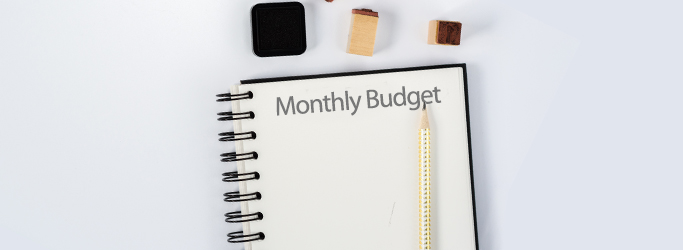Managing Money | Money Basics
3 money habits to develop in the time of COVID-19

How do you cope with life during these trying times? Here are three money habits you should consider:
- Take stock of your cash flow and start tracking your expenses
- Review your lifestyle and identify essential from the non-essential expenses
- Start setting aside money for an emergency
The extended enhanced community quarantine (ECQ) left many to wonder about the “new normal.”
We asked some people who agreed to share their experiences during the ECQ period and how they managed their money. Here are several lessons learned:
Always track your expenses
People who were able to set aside money prior to the lockdown, they realized the need to always have ample cash on hand. Because they were prudent, they have been taking stock of their cash and essential needs, as they tracked their expenses regularly during the ECQ period.
Niel Rivera, a single parent, was among those who regularly tracked her expenses as she didn’t want to run out of money during the lockdown.
“There was too much uncertainty. I don’t know when I’m going to have money next because I didn’t want to go to the ATM. Every time I bought something, I had to review how much money would be left. I take account of every expense I make.”
She also chooses to pay some expenses through her credit card. This allowed her to monitor spending while recording income working from home. “Whenever I could, I paid using credit card. If it’s cash, I’ll have to be stricter about it.”
Review and compare your ECQ and pre-ECQ lifestyles
During the ECQ period, Rivera admitted she was forced to do a “lifestyle check,” as she reflected on changes in her family’s daily routine.
“I could continue with what we had before but we were able to cut down on many needs. It’s just a question of us partly adopting to an ECQ-level lifestyle,” she said.
Like Rivera, checking lifestyle doesn’t necessarily mean you have to make changes outright. Reviewing your lifestyle could help understand how you can better manage your finances, post-ECQ, and focus on developing new money habits, such as tracking expenses and budgeting for an emergency.
Start building an enhanced emergency fund
An emergency fund is one practical approach to keeping any emergency in check. Building an emergency fund is a critical money habit that applies to any given situation including a pandemic. But the recent lockdown has made it more apparent.
Anne Cruz, a mother of two, and her husband were getting ready to buy a house when the ECQ happened. The couple was planning to put their entire savings as down payment for the house when ECQ was imposed.
“It was just a coincidence that we had some money stashed for a goal but this was not an emergency fund. It was a wakeup call that illustrated perfectly why an emergency fund is needed,” Cruz said.
The ECQ also forced them to consider the extent of how much they would put in to their emergency fund.
“We’re definitely motivated to create an emergency fund. We just need to think about how much we should put in,” she said.
Step back from non-essential expenses and travel
Even with some budget aside, people are eager to restart their lives immediately after the ECQ.
However, some people are more cautious about their expenses, becoming more prudent of their finances.
Marie Gabriel, a consultant for a regional development institution, is holding back on any more purchases from what she used to have pre- and during the ECQ period.
Instead, the money she planned for personal needs and travel will be put into an emergency fund, and invested in other financial instruments, such as stocks.
“I’d rather make my money grow by looking for a business to invest in so I’d have another asset source that would be ready for the next event,” she said.
This article is part of a collection of stories and practical financial tips that are published with the goal to help people learn from the experiences of others, and to pick out lessons on personal finance and sound money habits beyond the pandemic.
More Smart Reads